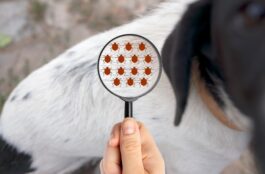
If you have a particularly active pet, consider neutering. Whether it’s a high-jumping cat or a sprinting dog, spaying and neutering extend beyond immediate health benefits. These procedures help prevent unwanted litter and reduce overpopulation. For athletic pets, the long-term perks include enhanced behavior, increased stamina, and potentially longer lifespans. Let’s clear up misconceptions and highlight why neutering or spaying can be the key to a long, vibrant life for your energetic pet.
Long-Term Health and Behavioral Benefits for Neutered Athletic Pets
So, how does neutering my pet affect them in the long run? It’s important to know that when we neuter our pets, we’re looking out for their future well-being. Here are some of the enduring advantages your athletic pet can enjoy:
1. Reduced Risk of Certain Cancers
One of the most touted benefits of neutering is the significant reduction in the risk of certain types of cancers. Your furry friend’s risk of developing mammary gland tumors, testicular cancer, and even some kinds of prostate issues can plummet post-neutering. Keeping them in the game for as long as possible and reducing cancer risks is like ensuring your pet’s health is always in peak condition.
2. Decreased Roaming and Related Injuries
Are you ever worried about your athletic pet sprinting out the door and taking off? Neutering can help quench that wanderlust. Unneutered pets often feel the call of the wild a bit too strongly and go gallivanting, searching for a mate. These escapades aren’t just about hurt feelings when they ignore your call to come home; they can lead to severe injuries or run-ins with traffic.
In the unfortunate event that your pet does become injured while roaming, having a reliable animal emergency clinic to turn to can be a lifesaver. Neutering reduces the likelihood of these dangerous jaunts, contributing to peace of mind for you and a secure, happy home for your pet.
3. Avoidance of Unwelcome Critters
Get this—unneutered pets, especially those with a bit of that wild spirit, can attract unwanted guests like strays or feral animals. With these encounters come risks like disease transmission and parasite infestation. Neutering can be like a simple ‘no trespassing’ sign, keeping those external hazards away and your pet healthier in the long run.
4. Better Behavioral Outcomes
Now, behavior is critical for our highly active fur friends. Spaying or neutering often leads to more docile and predictable temperaments. We’re not saying it’ll take the spring out of your cat’s leap or the speed out of your dog’s dash—instead, it helps manage aggressive behavior and makes training more accessible. Consistency in training regimens is crucial for athletic pets; neutering can help maintain that steadiness.
Addressing Common Concerns
Will Neutering Affect My Pet’s Athleticism?
Here’s a valid concern: Will neutering diminish my pet’s athletic prowess? The quick answer is no. Neutering won’t turn your gold-medalist-in-the-making into a couch potato. In fact, by preventing diseases and reducing distractions, neutering may help maintain their athletic aptitude for longer.
Considerations Before Neutering
Before you book an appointment for a dog and cat spay in Los Angeles, CA, consider your pet’s overall health and breed. Chatting with your vet about the perfect timing for the procedure to match your pet’s needs is always intelligent.
Neutering as Part of a Holistic Approach
Remember, neutering isn’t a standalone fix. It’s best to consider it one part of a comprehensive health strategy for your pet. Pair neutering with regular check-ups, vaccinations, and a proper diet to boost their well-being. With this holistic approach, neutering is one smart move in a series of health decisions that keep your pet fit and fabulous.
Neutering and Lifespan
Scientific studies suggest that neutering can contribute to a longer lifespan for our pets. By preventing certain diseases and potentially hazardous behaviors, your athletic buddy has a better shot at a lengthy and robust life.
The Role of Professional Veterinary Services
It is crucial to work closely with veterinarians who understand internal medicine for dogs in Los Angeles, CA. These seasoned pros can guide you through the neutering process and address any sport-specific concerns you might have for your agile amigo.
Planning for Recovery and Beyond
What to Expect Post-Neutering
After the procedure, your pet will need some downtime. But don’t worry; they’ll be back to chasing balls or scaling your furniture in no time. Follow your vet’s advice for a smooth recovery, and you’ll see your pet bounce back, often even more robust and healthier.
Here are a few things you may observe post-neutering:
-
A short period of low activity
-
Mild swelling or discomfort at the incision site
-
Temporary changes in appetite
Maintaining Fitness Post-Neutering
Once your pet has healed, maintaining their fitness is key. Incorporate daily exercise routines that are in tune with their recovery stage. Gradually build back up to those vivacious activities they adore.
Continue Check-Ups and Consultations
After neutering, keep up with regular vet check-ups. They are your ally in tracking your pet’s athletic condition and overall health post-surgery.
Final Thoughts
Neutering your athletic pet offers a pathway to a healthier, happier life. It’s about looking at the big picture and understanding that a simple procedure could reduce health risks, better behavior, and potentially a longer life. With proper planning and care, neutering can help your pet stay on top of its game well into its golden years. Regarding the health of our pet athletes, it’s always better to play the long game, ensuring they are fit for the track or the agility course and a long, fulfilling life at our side.


